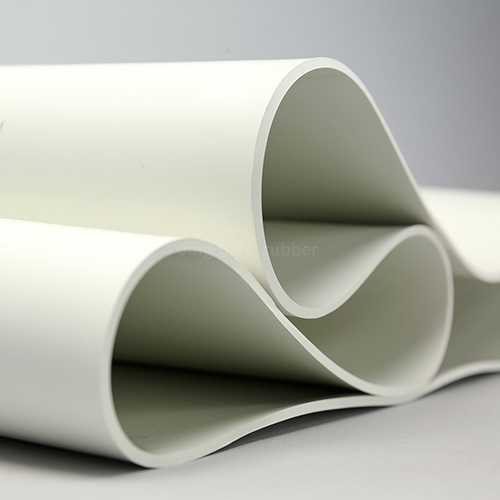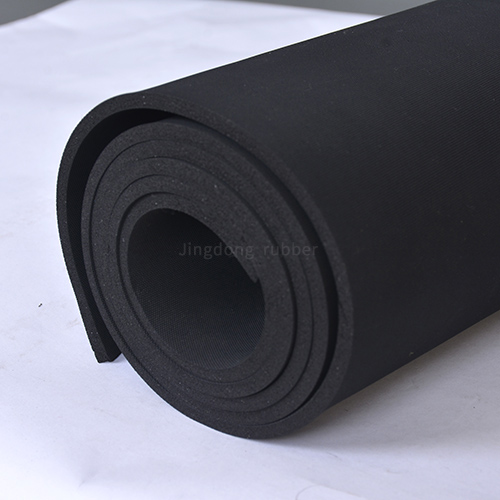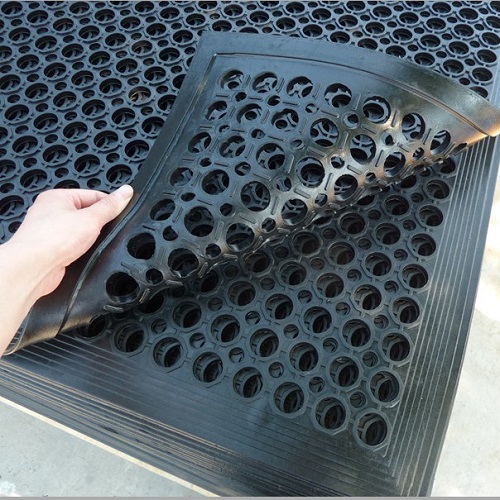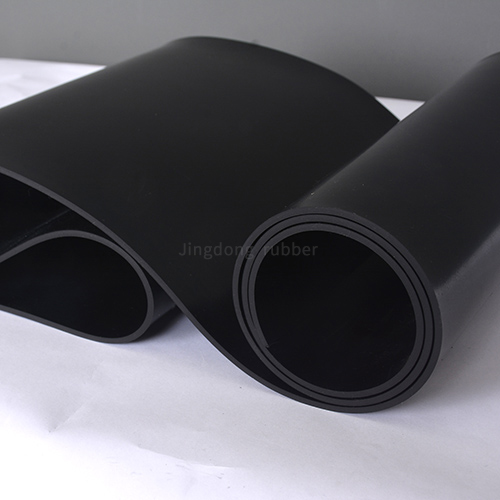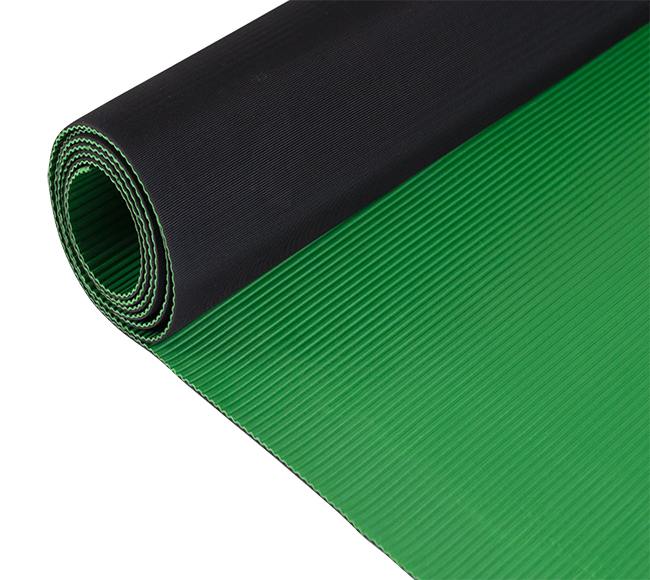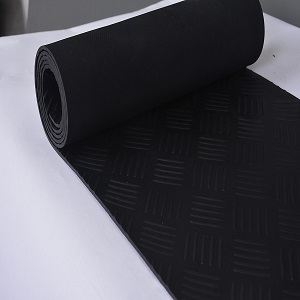Gas Phase Silicone Rubber Sheet
Understanding Gas Phase Silicone Rubber Sheet
Gas phase silicone rubber sheet is a high-performance, cross-linked polymer material manufactured using a unique gas phase process. This advanced production method yields a material with superior purity, exceptional thermal stability, and outstanding electrical insulation properties compared to silicone rubber produced by traditional methods. These sheets are characterized by their excellent resistance to extreme temperatures, ozone, UV radiation, and a wide range of chemicals, making them indispensable in demanding industrial applications.
Key Product Specifications and Parameters
To ensure you select the correct material for your specific needs, here are the detailed technical specifications for our Gas Phase Silicone Rubber Sheet.
Physical & Mechanical Properties
- Material Base: High-purity Silicone Polymer (Polydimethylsiloxane)
- Production Process: Gas Phase Polymerization
- Standard Color: Translucent, Red, Black, White, Custom colors available
- Density: 1.15 - 1.25 g/cm³
- Tensile Strength: 8.0 - 12.0 MPa
- Elongation at Break: 400% - 800%
- Hardness (Shore A): 20 ±5, 30 ±5, 40 ±5, 50 ±5, 60 ±5, 70 ±5
- Tear Strength: 25 - 45 kN/m
Thermal and Electrical Properties
| Property | Value / Rating | Test Standard |
|---|---|---|
| Continuous Service Temperature | -60°C to +250°C | ASTM D1329 / ASTM D573 |
| Peak Short-Term Temperature | Up to 300°C | ASTM D1329 |
| Volume Resistivity | > 1.0 x 10^15 Ω·cm | ASTM D257 |
| Dielectric Strength | 20 - 30 kV/mm | ASTM D149 |
| Dielectric Constant (at 1 MHz) | 2.9 - 3.2 | ASTM D150 |
| Dissipation Factor (at 1 MHz) | < 0.002 | ASTM D150 |
| Flame Retardancy | UL 94 V-0, HB | UL 94 |
Chemical Resistance & Certifications
| Characteristic | Performance |
|---|---|
| Weather & Ozone Resistance | Excellent |
| UV Radiation Resistance | Excellent |
| Water & Moisture Resistance | Excellent |
| Acid & Alkali Resistance | Good to Excellent (varies with concentration) |
| Solvent Resistance | Fair to Good (swells in some hydrocarbons) |
| Biocompatibility | USP Class VI, ISO 10993, FDA Compliant (for specific grades) |
| RoHS & REACH Compliance | Fully Compliant |
Standard Available Sizes
Our Gas Phase Silicone Rubber Sheet is available in a variety of standard sizes and can be custom-cut to your exact specifications.
- Sheet Thickness: 0.5mm, 1.0mm, 1.5mm, 2.0mm, 3.0mm, 5.0mm, and up to 20mm.
- Sheet Dimensions: 500mm x 500mm, 1000mm x 1000mm, 1000mm x 2000mm (Rolls also available).
Frequently Asked Questions (FAQ)
What is the primary advantage of gas phase silicone rubber over peroxide-cured silicone rubber?
The primary advantage lies in its superior purity and the absence of peroxide decomposition by-products. The gas phase process results in a cleaner polymer with lower levels of volatile content, which translates to better electrical properties, higher thermal stability, and reduced risk of contamination in sensitive applications like medical devices, food processing, and electronics. It also typically offers more consistent physical properties throughout the material.
How does the gas phase silicone rubber sheet perform in extreme cold temperatures?
It performs exceptionally well. It maintains its flexibility and elastomeric properties down to -60°C. Unlike many other elastomers that become brittle and glass-like, gas phase silicone rubber retains its resilience, making it ideal for seals, gaskets, and components in aerospace, automotive, and cold storage applications.
Is this material suitable for outdoor applications with constant sun exposure?
Yes, it is highly suitable. Gas phase silicone rubber possesses excellent resistance to ultraviolet (UV) radiation and ozone, which are the primary causes of degradation in outdoor environments. This inherent resistance prevents cracking, hardening, and loss of physical properties, ensuring long-term performance in roofing membranes, solar panel seals, and outdoor electrical insulation.
Can gas phase silicone rubber sheets be used for food contact or medical applications?
Yes, specific grades of our gas phase silicone rubber are manufactured to comply with stringent regulatory standards. We offer sheets that are certified USP Class VI, meet ISO 10993 biocompatibility requirements, and are compliant with FDA regulations for food contact. This makes them safe for use in medical implants, pharmaceutical processing equipment, and food handling machinery.
What is the best method for fabricating or cutting gas phase silicone rubber sheets?
These sheets can be easily fabricated using standard methods. They can be cleanly die-cut, kiss-cut, or stamped for high-volume production. For prototyping or custom shapes, they can be precision laser-cut or manually cut with sharp blades or scissors. They are also easy to punch and slit. The material's consistency ensures clean edges without fraying.
How does the flame retardancy of gas phase silicone rubber compare to other materials?
It is inherently flame retardant. When exposed to flame, it forms a non-conductive, insulating silica ash (char) that resists further burning and protects underlying materials. It typically achieves a UL 94 V-0 rating, the highest standard for flame retardancy, without the need for halogenated additives that can produce toxic fumes, making it a safer choice for electrical and transportation industries.
What types of adhesives bond well with gas phase silicone rubber sheets?
Bonding silicone rubber can be challenging due to its low surface energy. For a strong, permanent bond, a primer specifically designed for silicone should be used, followed by a silicone-based adhesive. Pressure-sensitive adhesives (PSA) with a silicone chemistry are also available and can be pre-laminated onto the sheet for easy application. Surface preparation through plasma or corona treatment can significantly improve adhesion.
What is the typical shelf life of a gas phase silicone rubber sheet?
When stored correctly in a cool, dry place away from direct sunlight, heat sources, and ozone-generating equipment, gas phase silicone rubber sheets have an exceptionally long shelf life. It is recommended to use the material within 5 to 10 years from the date of manufacture, but it can often remain usable for much longer if the storage conditions are ideal, as it does not contain plasticizers that can migrate out over time.


